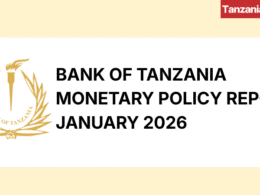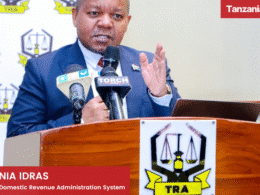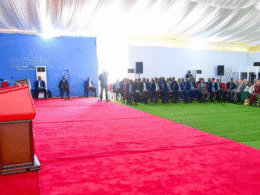The Bank of Tanzania (BOT) issued a public notice on 25th September 2023, informing the public of the commencement of its Domestic Gold Purchasing Program.
The program aims to bolster foreign exchange reserves through acquiring and holding gold. The Bank is therefore purchasing gold from domestic miners and traders, in Tanzanian Shillings. All stakeholders are invited to actively participate in this initiative.
The move is in line with the country’s strategic efforts to support the growth of the mining sector and fortify its foreign currency holdings.
During his visits to the Geita Gold Refinery and the Mwanza Precious Metals Refinery, BOT’s Governor Emmanuel Tutuba stated that the bank has so far bought 418kg of gold, with the plan being to buy six tonnes of the precious metal in 2023 alone.
He emphasized the bank’s commitment to diversifying Tanzania’s foreign exchange reserves, reducing dependence on a single currency, and safeguarding the nation’s wealth against potential global economic shocks.
In its Monthly Economic Review of August 2023, BOT reported that the foreign exchange reserves amounted to USD 5.247 billion at the end of July 2023, a slight decrease from the level reached at the end of July 2022.
The decline was attributed to sales in the interbank foreign exchange market to support the importation of goods and services.
Despite this, the reserves were sufficient to cover about 4.7 months of projected imports, aligning with both the country and East African Communnity (EAC) benchmarks.
Historically, Tanzania’s foreign exchange was predominantly reliant on the US dollar.
However, with the recent inclusion of gold in its reserves, the country aims to diversify its holdings and protect its economy from global financial instabilities.
Tanzania’s focus on gold as a stabilizing export product is due to the fact that gold accounted for approximately 25% of the nation’s exports in the financial year 2021/22.
The establishment of the National Gold Reserve was announced by Tanzania’s Finance Minister Mwigulu Nchemba during the 2023–24 budget presentation.
The primary objective behind this step was to address challenges in the mining sector and ensure that Tanzanians derive greater benefits from the country’s vast natural resources.
The initiative was also a response to allegations of fraud, smuggling, and underreporting of production and profits in the mining sector and alleged inconsistencies in gold exports and production data.











